- AI
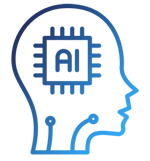
Artificial Intelligence

Smart Products & Services
We follow Smart Products & Services

Intelligent Business Functions & Processes
We follow Intelligent Business Functions & Processes

Robotic Process Automation
We follow Robotic Process Automation

Personalized
healthcareWe follow Personalized healthcare

Identifying at-risk patients
We follow Identifying at-risk patients

Optimized routing and scheduling
We follow Optimized routing and scheduling
- ML
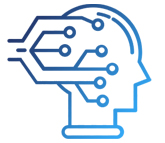
Machine Learning

Predictive
AnalyticsWe follow Predictive Analytics

Service Personalization
We follow Service Personalization

NLP
We follow NLP (Natural Language Processing)

Stock Market Forecasting
We follow Stock Market Forecasting

Fraud Prevention
We follow Fraud Prevention

Recommender engines
We follow Recommender engines
- blockchain
- IOT
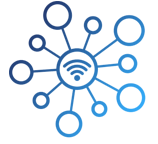
Internet of Things
- AR
- Business Solutions
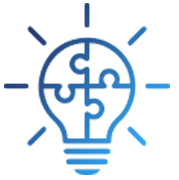
Business Solution

Business Performance Management
We follow Business Performance Management

Decision Making & Big Data Analytics
We follow Decision Making & Big Data Analytics

Enterprise Data Management
We follow Enterprise Data Management
- Apps

Apps

Native Apps
We follow Native Apps

Cross Platform Apps
We follow Cross Platform Apps

Web Apps
We follow Web Apps

Hybrid Apps
We follow Hybrid Apps

Cloud Native Apps
We follow Cloud Native Apps
- Lab

Seven Cutting-Edge Trends Of Cloud Computing In 2021
As technology is leaping forward at an unprecedented pace, it brings about a drastic change in our personal and professional lives. Organizations are adopting modern techniques of securing their data and maximizing human employees’ potential to work efficiently. It is putting a significant impact on employees’ performance and productivity and is bringing effective results to the businesses.
As far as data storage is concerned, companies no more rely on local servers due to their incapability to store a large amount of data. The best solution is cloud computing. It is a technology that is revolutionising the world of business, and many leading organisations have set up their permanent cloud server storage.
These companies are namely Google, Apple, Amazon, Microsoft, and Oracle. The dominance of cloud computing services is prevailing all around the world. It provides a comprehensive solution to companies in keeping their data secure for a lifetime.
Here are the seven futuristic trends of cloud computing in 2021:
Automation of Data

Automation is a critical aspect that is a new trending success for the future. It has eliminated the restrictions and failures of disk storage, data security, interconnectivity, and local server issues.
It gives a rapid shift of data to clouds and makes it easier for businesses to store and retrieve their data anytime and from any remote location. The addition of robotics has also filled the gap of lack of technology, and organisations now efficiently use their data for different purposes.
The Rise of Edge Computing

As the trend for edge computing has emerged to the front, its popularity has also risen at a faster speed. The function of edge computing is similar to the cloud, but it locally stores data on the devices.
There are regional data hubs and telecom towers in global cities that offer a central storage location for your data. It brings your data closer to you, eliminates the distance of a remote data server, and delivers the rapid performance of real-time applications. The regular applications of edge computing are the internet of things, Bluetooth, facial recognition, temperature control systems, remote doorbells, and bright light switches.
Server-less Computing Architecture

The demand for server less computing is increasing day by day among software developers around the world. It gives a new rise to the development and provides resources for maintaining and upgrading servers. Some of the benefits of server less computing are cost efficiency, energy efficiency, flexibility, scalability, a steep learning curve, and the cheaper cost of human resources. It improves better user experience and enhances the latency delay in the input and output of data.
Virtual Cloud Desktop

Virtual cloud desktop is commonly known as desktop as a Service. The DAAS delivers workstations to organisations through the help of cloud servers. It means that everything from computer setting and networking to operating systems is shown on the internet. It lowers down the cost and provides access from any random and remote location of the world. It reduces the need for physical hardware technology and provides centralised data security to businesses of any size.
Gaming Cloud

The incredible growth of the gaming industry makes it stand on the competition of the television and movie industry. It will reach beyond millions of dollars in the next few years. Customers are going crazy about installing and downloading the latest version of the game that engages them for indefinite hours.
For businesses, the gaming revenue will reach $3.74 billion by the year 2023. More and more gamers will come up in the local market and increase the demand for gaming apps among customers. Cloud computing will be the only solution to store the massive amount of gaming data as local servers will be incapable of keeping such an amount of data in the future.
Use of Artificial Intelligence in Cloud Computing

The future of cloud computing will be dependent on artificial intelligence in many ways. AI will play a significant role in delivering data storage services to clients. The main functions of AI consulting will be chat bots, personal digital assistants, and location services. It will save a lot of time, money, and resources. Many businesses will utilise AI in their workflow operations to streamline and organise their tasks. It will provide solutions to artificial intelligence problems and will also forecast the financial condition and data analysis of companies in the future.
Quantum Cloud Computing

It is certainly expected that the performance of modern computer systems will soon rise in the coming future. Quantum computing will be an excellent solution for businesses to speed up their data processing and boost the performance and efficiency of their cloud. It will have a dynamic impact on the process of data storage and retrieval in organisations that will benefit them in the future.
Conclusion
Hence, in a nutshell, those mentioned above are a few contemporary cloud computing trends in 2021. Utilising these trends in business will boost the value of data in organisations and provide safety and protection. Due to the rise in technology, all the businesses will adopt the IOT management platform to incorporate internet of things in cloud computing.
Also Read: 6 Sure Fire Tips To Completely Revamp Your Business With Cloud


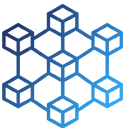
















































Leave a Reply